The ad-based business model on the Internet is dying - and it's getting worse in the process.
Ads are everywhere on the web, but they are also incredibly annoying. Can ad-based businesses survive in the long-term?
Ads have been the foundation of many businesses online since the Internet started to be used by the masses: news outlets, social media companies, bloggers and influencers. They all rely on ads.
Most prominent representatives of the ad-based business model are Google and Facebook. These Silicon Valley tech giants are also known for highly targeted ads which - due to their privacy violations and other problematic influences - should be banned entirely.
First signs of death
News outlets have been struggling for years to build a profitable web presence with ads. Since the early days, when display ads had a click-through-rate of ~50%, this number has gone down dramatically as we have become trained to not see display ads - which comes at no surprise as the average internet user is being shown thousands of display ads per month so we have become trained to scroll passed these ads without even looking at them.
This, in turn, has made ads even more intrusive and annoying: pop-ups, blinking and moving ads, animations - advertisers today are desperately trying to steal your attention.
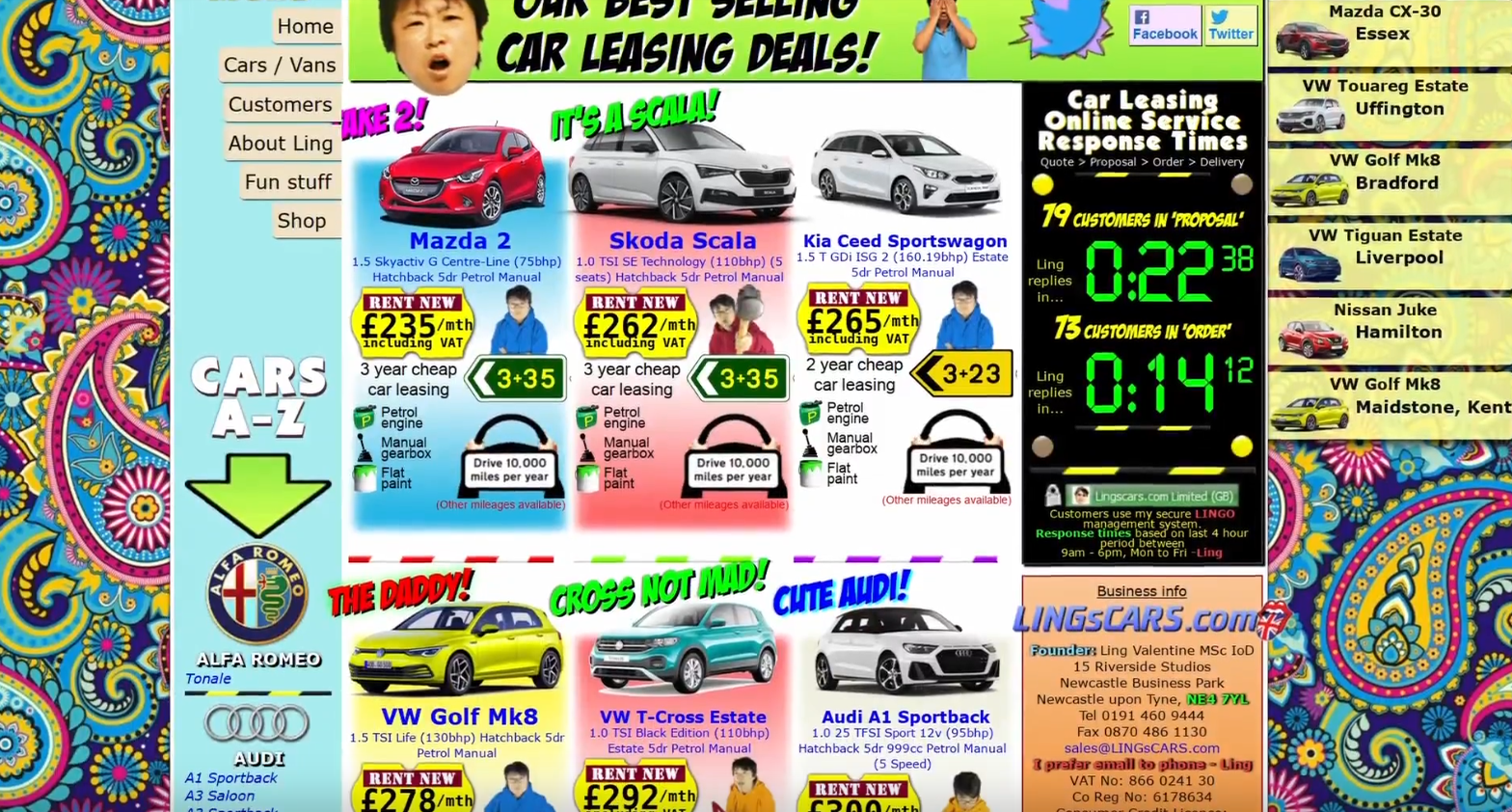

Yet the more intrusive the ads have become, the more they have pushed people away. Today almost one third of Internet users have installed an ad blocker to remove the annoying ads (which by the way also take up band-width and increase loading time).
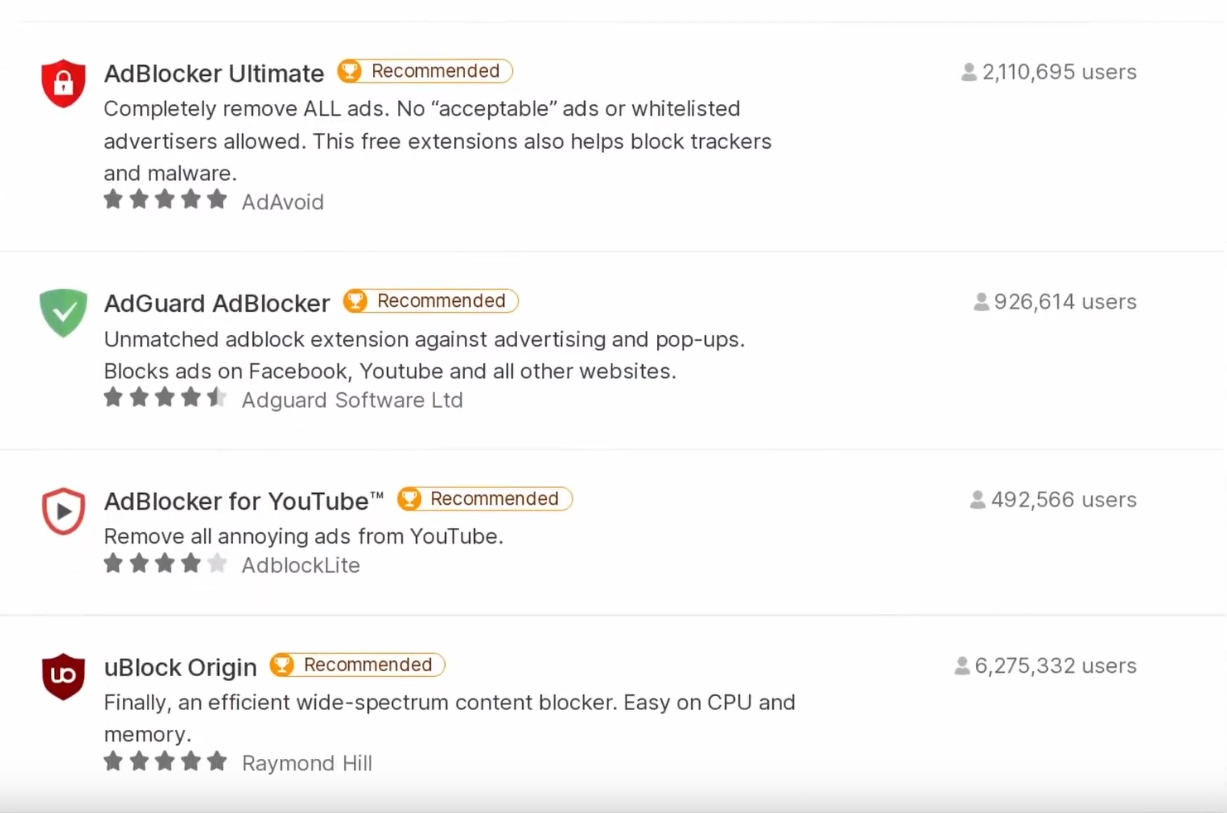

For these reasons, media outlets are trying to build subscription based business model, and major outlets like the Guardian in the UK, the New York Times in the U.S., and the Spiegel in Germany are rather successful with this.
Social media giants also affected
While Facebook and Google may be at the peak of their profitability, the signs of death for social media giants become more and more visible - like shells that are being washed up onto the shore.
While Google’s search engine is still the dominant one, so dominant that it can harm a competitor by downranking it in the Google search results, profits are not rising anymore.
Thus, Google, has recently switched its search engine to infinite scrolling for some users - most likely to test how they can server even more ads: “They had to make this change because they increased the number of ads. If the result is paginated, a high percentage of links in the first page would be ads. With infinite scroll that’s not a problem because there are an infinite number of links on “the first page”.”
Google is no longer increasing its ad revenue as recent financial data is showing; and Meta’s ad revenue has even decreased in 2022 compared to 2021 - for the first time since Facebook was created.
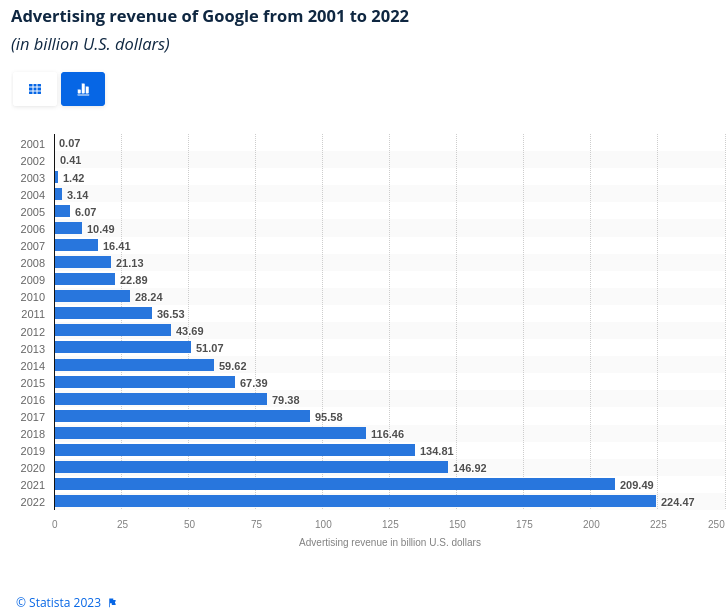

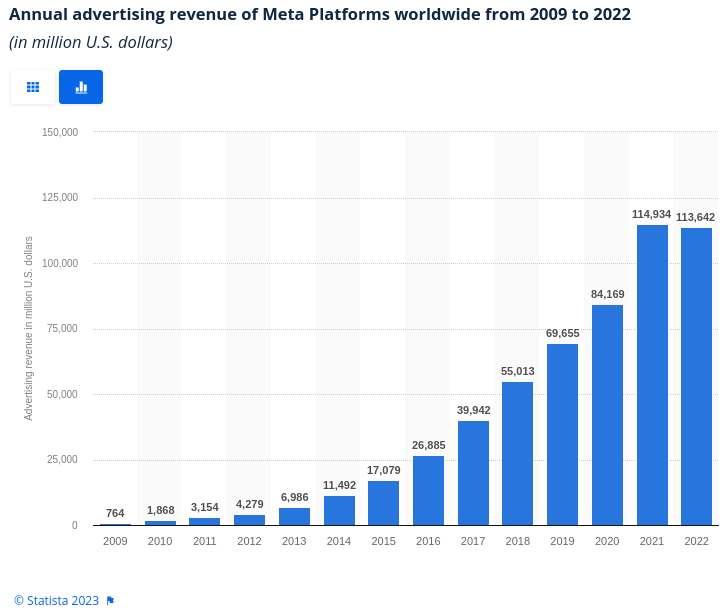

Other social media giants like Twitter (or now X) and Reddit are also changing their product constantly to increase ad revenue.
Twitter has introduced yearly fees for individuals and companies who want to be verified. The move goes into the same direction as media outlets: building a subscription based business model instead of relying solely on ads.
Reddit has made it extremely expensive - thus impossible - for third-party apps to display Reddit content. The reason is obvious: These apps removed Reddit ads and made the experience for the user much more pleasant. For that reason, these apps were highly popular - but also cut into the ad profit of Reddit.
Taken together, it becomes obvious that even the giants among social media outlets are struggling to keep up with investor’s demands, trying to find new ways to monetize their users.
Simply displaying ads is no longer sufficient - even though these giants have millions or even billions of users.
Free is not free
One might argue that it’s a good thing that the ad-based business model is dying - and as a privacy-first company we couldn’t agree more!
After all ads, particularly targeted ads, combine everything that is bad on the internet: profiling, tracking, an invasion of ones privacy, creating and enhancing so called bubbles - even fueling conspiracy theories.
However, the way Big Tech is building subscription based business models is not the way to go. They seem to only add a subscription on top of ads, tracking and profiling. On Twitter, for instance, you can reduce the number of ads you are being shown by 50% when paying for the service. You can not stop being tracked and being shown ads altogether.
That’s why we have united with other privacy-first provider to call on politicians to ban targeted ads.
Now it’s the politicians turn to improve the internet for all of use. But there’s also good news: The ad-based business model that relies on tracking and profiling of users has already been declared illegal in Europe in a case against Facebook. This is just a first step against the power of these tech giant, but more will follow.
We all know that free is not free on the web. We must remember this, particularly when privacy-intrusive services like Twitter ask for our money - on top of targeted advertisements!
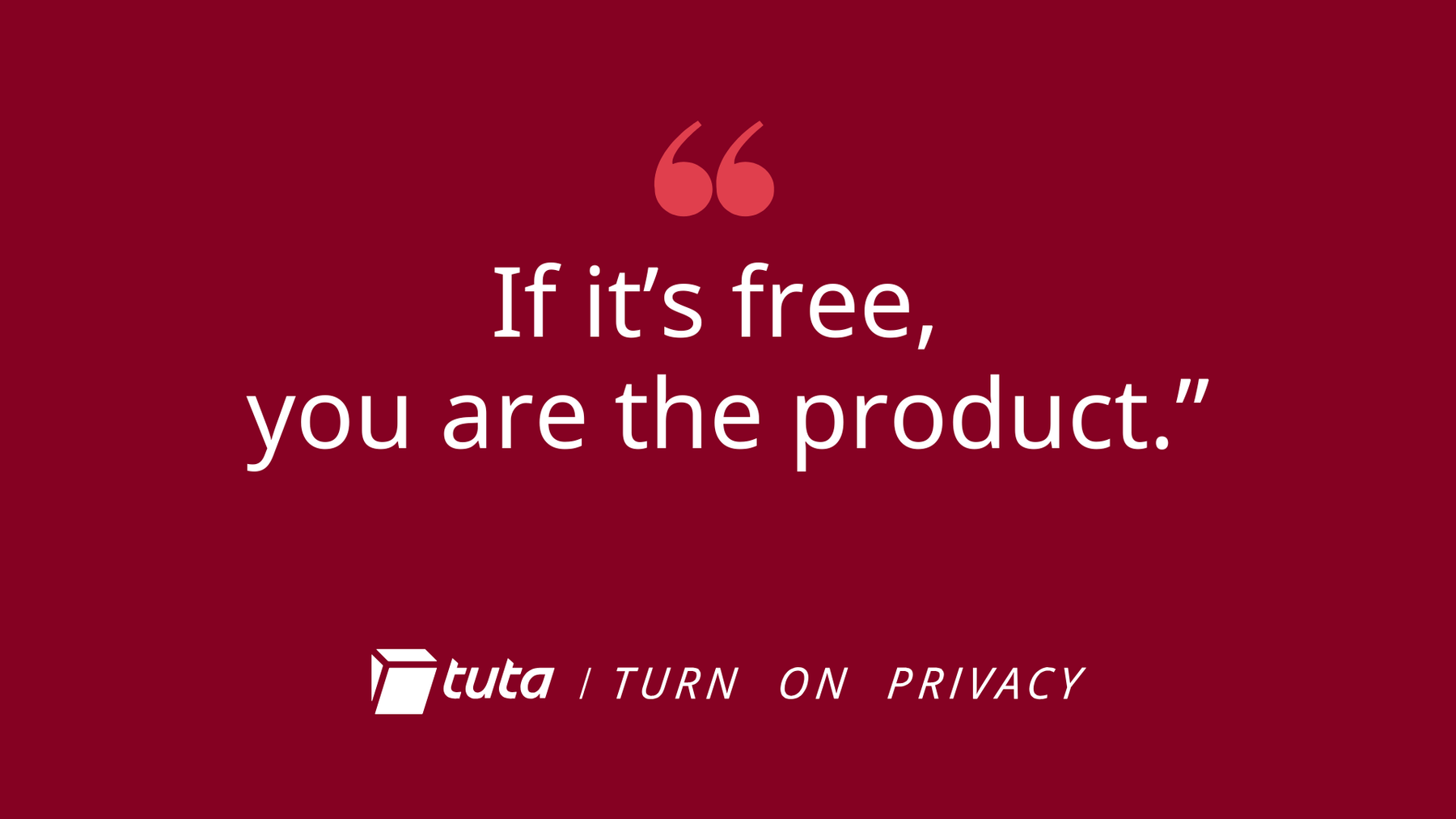

What is the ad-based business model
Almost all Silicon Valley giants rely on the ad-based business model, not just Google and Facebook, but also Amazon (third-party sellers need to pay to present their products on the platform), Apple (think about app store ads), and even Microsoft (though Bing is not as popular as Google Search).
How does the ad-based business work for tech giants
This business model has helped these companies to increase their revenue on a yearly basis for more than a decade. Factors that made their business model successful up to here were:
-
Fast user acquisition: Google, Facebook and many others chose the ad-based business model because it helped them to gain user traction fast: Google and Facebook, for instance, were able to offer their services for free so that millions, even billions of people joined these platforms over the years. Such massive user acquisition would not have been possible with a subscription-based business model where people had to pay for said services. On the other hand, the huge user base makes the ad-based business model work: The Silicon Valley tech giants can show their ads to lots of eyeballs so that they keep making money - even though the ad-based business model is on the brink of death.
-
Time and eyeballs: People today spend more time than ever on the Internet, and a huge portion of Internet usage goes to social media platforms. This gives these platforms the chance to post lots of ads and profit of people’s time and attention.
-
Tracking and targeting: By tracking what their users look at, click, and engage Google and Facebook can create accurate profiles of their users which enables them to show targeted ads. This makes ad-display more profitable than by showing ads that might be irrelevant to the users.
-
Analytics: A huge part of targeted ads is analytics. Only through analytics the platform knows what ads best to show to whom.
While Google and Facebook - as the best representatives of the ad-based business model - still make hundred of millions of Dollars with ads each year, hte peak has been reached. This is a first sign that the ad-based business model is coming to its end; and hopefully it will make the Internet better for everyone!
Why is the ad-based business model dying?
The ad-based business model is highly criticized - not just for its privacy violations, but also for its detrimental effect on user experience.
Getting worse through AI: Click-bait articles have become top hits on Google search because these publishers know exactly what the Google algorithm wants to see. However, this is not high-end, quality content, and AI is going to make this even worse. These sites create as much content as possible to cater the largest audience possible, using click-bait article like you won’t believe how star X looked like as a child or five ways to get rich quickly. The cheaper it gets to create such content, the more the flood of content will increase, ultimately making the web even worse.
Intrusion of privacy: The ad-based business model relies solely on collecting user data for targeted advertising. User are forced to agree to very harmful Terms & Conditions to use social media platforms such as Facebook. They have to sell their privacy for being able to use these services and taking part in social interactions online. Using these services without giving up on privacy is in most cases not possible.
User experience: Ads harm the user experience as they take away attention what the user wants to see, diverting them to what the advertiser wants to display. Blinking, moving or pop-up ads are particularly annoying.
Loading time: Ads need a lot of band-width, particularly is these are animated or video ads. Thus, they cause slow loading times.
Influence: Ads are targeted at users to make them do something - whether it’s buying new shoes or voting for a particular party. In combination with psychological tricks (“last chance to get this great deal”) or by using fake news and sensationalism during highly targeted political ad campaigns, they can influence the population in harmful ways.

